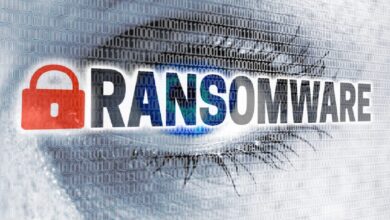Living in the Terrifying Age of Cyber Warfare

With the evolution in high-tech developments, many new notions are materializing in to reality that, a decade or two back were even hard to imagine. But this evolution in technology has also exposed the world to the biggest threat in the form of Cyber warfare.
Living in the Terrifying Age of Cyber Warfare
The first known incidence of cyber-attack was conducted in 1998, when United States hacked into Serbia’s air defense system to compromise air traffic control and facilitate the bombing of Serbian targets. But the major wave of cyber assault started back in 2007 when Russia bombarded Estonia with cyber warfare, disabling the websites of government ministries, political parties, newspapers, banks, and companies.
But after the recent news of Russian hacking of the Democratic Party’s computer networks and interference with the US presidential election, cyber warfare has taken the central stage in the global arena. Experts are calling it “the political equivalent of 9/11” to delineate the seriousness of the problem.ith the evolution in high-tech developments, many new notions are materializing in to reality that, a decade or two back were even hard to imagine. But this evolution in technology has also exposed the world to the biggest threat in the form of Cyber warfare.
Cyber warfare is an extreme form of electronic offense in which a state or any international organization attempts to damage another nation’s computers or information system via systematic attacks through computer viruses or denial-of-service attacks. Cyberspace not only provides opportunities for innovation and advancements but it also raises issues of cyber vulnerabilities.
Cyber warfare is an extreme form of electronic offense in which a state or any international organization attempts to damage another nation’s computers or information system via systematic attacks through computer viruses
Over the decade, governments and non-state hackers have become highly sophisticated in their cyber-attacks, moving from basic hacking to security breaches in critical infrastructure and government personal data. Furthermore, internet is also being run by criminals to run their terror networks and wicked propaganda.
Cyber-attacks pose threats to three main areas including:
Government Threats
Cyber-attacks conducted against government websites to access confidential information regarding government operations, military forces, the strengths and weaknesses of weapon systems, and any other kind of sensitive information that can to harm state.
Due to the catastrophic consequences of secret information landing in the wrong hands, U.S. Director of National Intelligence has ranked cyber-crime as the No. 1 national security threat, ahead of terrorism, espionage and weapons of mass destruction.
Business Threats
Governments are not the only one at the risk of cyber-attacks, private business are equally prone to attacks. In countries like USA and UAE where smartphone penetration and adoption of new technologies is high, businesses suffer the most damage.
In 2016 alone, the financial cost of cybercrime in UAE reached 1.4 billion dollar.
Social Media Threats
The rise of social media has also accompanied the rise of social media cyber-crimes. Over 30,000 new websites are corrupted daily with compromising codes.
According to a Microsoft report, Pakistan is among the top targets for malware attacks worldwide with fifth highest infection rate
Back in 2011, Facebook admitted that it was the target of 600,000 cyber-attacks every day but after that it never released official figures since; obviously not wanting to scare off potential users. With increased number of social media users, these numbers surely would have also increased.
Pakistan, despite being a nascent state in cyber world is also at a high risk of online vulnerability. India and Pakistan have a long history of conducting cyber-attacks on each other’s websites but this was mostly done by independent hackers who only wanted to belittle the other. According to a Microsoft report, Pakistan is among the top targets for malware attacks worldwide with fifth highest infection rate. After the introduction of 3G/4G technology and cheaper smartphones, greater availability of internet is now provided to the masses but due to lack of awareness regarding online security risks, users fall prey to virtual security troubles.
A more serious case surfaced few years back when a report was published by The Intercept, according to which United States’ spy agency National Security Agency (NSA) allegedly spied on top civil-military leadership in Pakistan back in 2013 by using malware, SECONDDATE. Recently, Senate Standing Committee on Foreign Affairs revealed that Pakistan is a popular target for foreign espionage. Senator Mushahid Hussain informed the committee that Pakistan is one of the three countries that are most prone to cyber-attacks; other two countries being Iran and China. But sadly Pakistan is far behind at this front, even the cybercrime bill for online protection of Pakistani citizens was even approved last year.
According to Senator Mushahid Hussain, Pakistan is one of the three countries that are most prone to cyber-attacks
Countering foreign interference in the cyber world should be the number one priority for the government since cyber-attacks could threaten the interconnected global economy while also raising the prospects of cyber warfare, chances of which are even higher for Pakistan due to its strategic importance in the world community. Since the biggest challenge for government today is to treat cyberspace as an integral part of global economic, societal, and geopolitical systems therefore, it needs to create a supportive landscape through active policy and regulations. Even the unpopular and most controversial president of Unites States, has realized the importance of technology and added Elon Musk and Travis Kalanick to his President’s Strategic and Policy Forum, giving representation to the Silicon Valley for the very first time.
It is quite apparent that hackers have the power to do more damage than they have shown so far therefore; being a top target of foreign espionage Pakistani government should take concrete steps to counter cyber crimes. But for that, the government first needs to properly understand the nature and sources of the threat. Secondly, government must act in collaboration with private sector to come up with a solid counter strategy.
Government must act in collaboration with private sector to come up with a solid counter strategy
The most effective way to protect against cyber warfare attacks is to tighten up the security of information and networks. Venerable system used to carry out cyber-attacks therefore, updated security applications should be used for protection, especially by state actors. Government should start an awareness campaign to inform people the cyber risks and guide them to make a secure online identity but above all, government should also devise ways to mitigate the potential damage of such attacks. The world has since long moved away from traditional warfare strategies and have entered the world of cyber warfare for this reason, intensifying the need for nations to protect their online borders.
PTA Taxes Portal
Find PTA Taxes on All Phones on a Single Page using the PhoneWorld PTA Taxes Portal
Explore NowFollow us on Google News!





